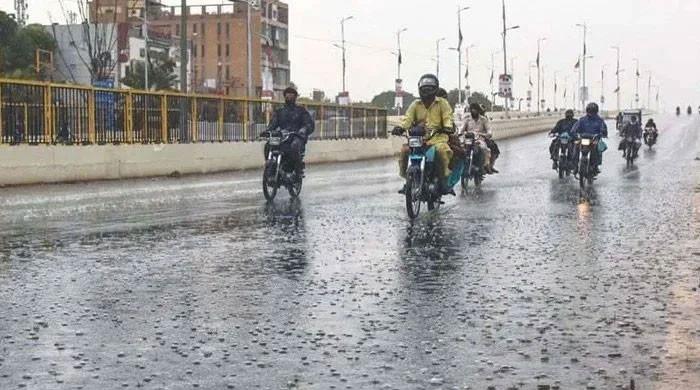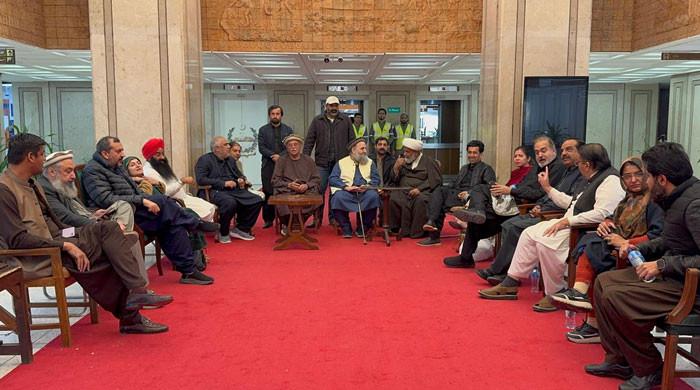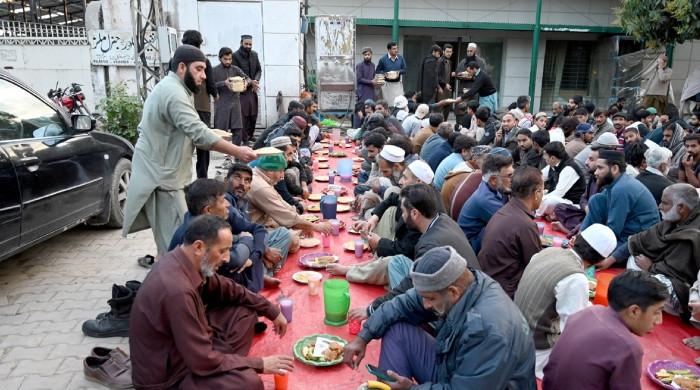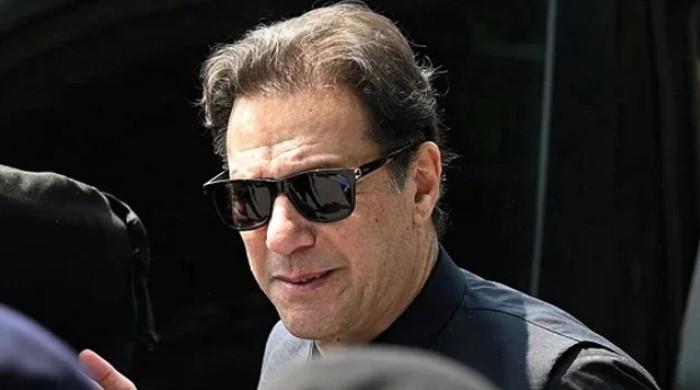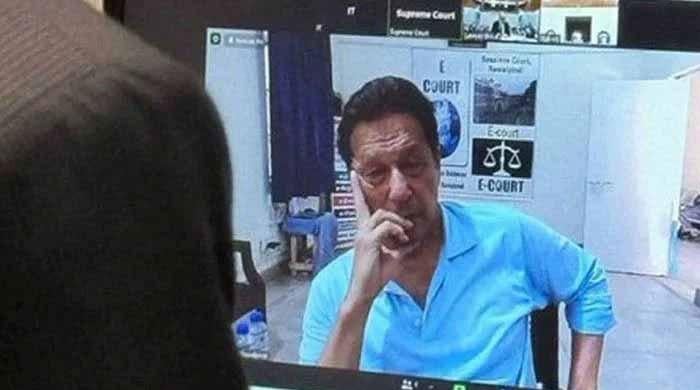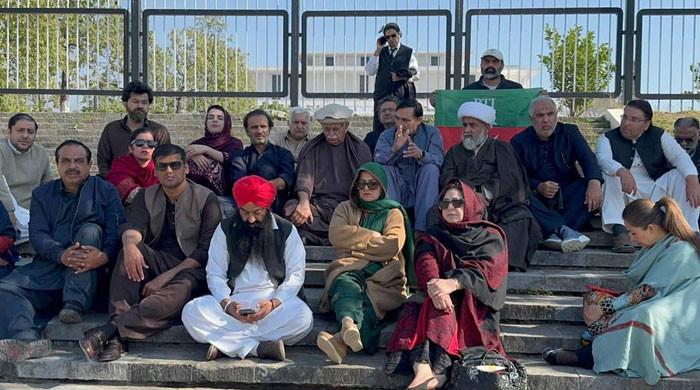Can president 'unilaterally' announce election date?
Geo.tv reaches out to legal experts for understanding whether President Alvi had the right to resort to the move or not
February 20, 2023
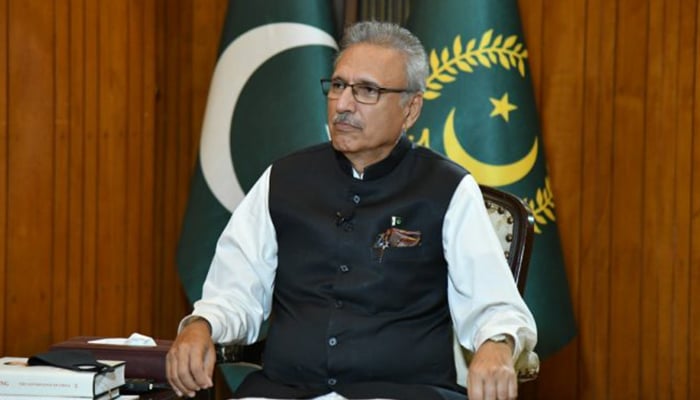
After deciding that Khyber Pakhtunkhwa (KP) and Punjab governors — Haji Ghulam Ali and Baligh Ur Rehman — and the Election Commission of Pakistan (ECP) were not fulfilling their constitutional duties to announce the date for polls in both provinces, President Arif Alvi announced Monday that elections would take place in April.
The president maintains that he reached out to the election organising-authority for consultations over the date of the polls, but the ECP declined and neither of the governors took initiative to ensure that, in line with the Constitution, the elections were held within 90 days of the dissolution of assemblies.
Punjab and KP assemblies were dissolved by the Imran Khan-led Pakistan Tehreek-e-Insaf (PTI) on January 14 and January 18, respectively.
The ECP has also been insistent that it cannot announce a date on its own and needs the consent of the governors — but there has been no breakthrough there as well.
The Lahore High Court (LHC) directed the electoral authority to hold consultations with the Punjab governor and "ensure that the elections are held not later than 90 days as per the mandate of the Constitution".
As a result of the back-to-back consultations, rejections, statements, orders, and the politics surrounding the issue, the president announced the election date after assuming that no one would be issuing the date soon.
Following the president's move, Geo.tv reached out to legal experts to understand whether the decision was legally binding or did the supreme commander overstep his authority.
'Gravely damaging'
— Barrister Asad Rahim Khan
The correct authority for announcing a date for the polls is the governor under Article 105, and, in the event, he chooses not to dissolve the assembly, then the ECP in consultation with the governor should announce the date of the election, as recently affirmed by the LHC judgement by Justice Jawad Hassan.
The Election Act of 2017 is superseded by the Constitution and was last applied when the president was announcing a date for general elections at the national level. In any case, the president would still require consulting with the ECP before announcing any such date.
We nonetheless find ourselves here because the ECP and the governors have shirked their constitutional obligation, besides being in contempt of the LHC judgement by not completing the consultation process and announcing a date. This is gravely damaging our democracy.
Move 'legal'
— Advocate Sheikh Saqib Ahmed
The president announced the date for elections after the governor and the ECP breached their constitutional obligations which are clearly stated in Article 105(3) (a) and (b) [Governor to act on advice, etc]. It is worth mentioning here that word 'shall' has been used in Article 105 of the Constitution which is clearly not discretionary in nature but mandatory and by not fulfilling the provision, Article 6 of the Constitution — high treason — can be invoked against the governor(s) by way interpretation as it is intelligibly there in Article 6 that any person who abrogates or subverts or suspends or 'holds in abeyance' [..] the Constitution [..] shall be guilty of high treason. However, that would not be an idea for the federal government.
As far as Alvi's announcement for election(s) date is concerned under Section 57(1) of the Elections Act 2017, it can be termed as legal and not ultra vires as the act only defines 'bye-election' in Section 2 (vi), which means an election to fill a casual vacancy. Thus, the president can announce the date or dates of general elections by virtue of the interpretation of Section 57(1) of the Act.
Constitution 'very clear'
— Lawyer Muneeb Farooq
It is written very clearly in the Constitution that when a provincial assembly is dissolved before its scheduled date, then the general elections will be held within 90 days. The election commission is mandated to hold the polling process and the governor of the province will announce the date.
The Punjab governor maintains since he did not sign the summary of the dissolution, he will not be issuing the election date. The ECP, on the other hand, says that it has to get the election date from the governor and cannot issue a date unilaterally.
After hearing both sides, the LHC told the election commission that it should announce the date after consulting the governor. The election commission then said that it isn't an executive force and needs the government's support for finance, manpower, and other things to conduct the elections.
Now, under Section 57 (1) of the Elections Act 2017, the president has announced the elections — but he should have done so in consultation with the ECP.
Now, the president can also say that he tried to consult the ECP, but the officials did not come to meet him. But now, things are a bit different here, these aren't the usual general elections.
Usually, when the elections for National Assembly take place, the president announces the date after consultations with the ECP. But now, the situation is different.
But if one were to read Section 58 of the Elections Act 2017, it says that the ECP can alter the election programme and it just has to inform the president.
But, the situation is different here. The responsibility to hold elections is the ECP's and the respective governor's responsibility. It is the ECP's responsibility to hold elections and the Constitution also binds all departments to cooperate with the ECP. But the Constitution is very clear on it: the election should be held within 90 days.
Not 'unilateral'
— Barrister Muhammad Ahmed Pansota
I think in the present situation, you cannot term it a unilateral step by the president of Pakistan. If we look at the events, the courts have asked the ECP to issue a date within 90 days. Section 57 (2) of the Elections Act, 2017, allows the president to announce the date if the governor is reluctant to do so.
His letter clearly mentions that he took the step after other parties expressed that they were unable to announce the election date. I believe that his exercise of jurisdiction under Section 57 (1) seems to be quite proper and in line with the Constitution. There seems nothing wrong with that.




